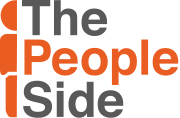You Can’t Be Great at Leadership Until You’re Great at This
Cultivating Self-Awareness
For many leaders, taking a 360 feedback assessment is an experience that triggers an unsettling mixture of dread and intrigue. The process involves answering questions about yourself and then inviting peers, direct reports, and bosses to answer those same questions about you. To say this requires a fair degree of courage would be an understatement.
I’ve been debriefing a number of 360 feedback assessments with my coaching clients lately, in particular The Leadership Circle Profile and the EQi360. And here is what I’m seeing unfold.
Many leaders think they are showing up one way, but the 360 data tells them a very different story. For some, the gap between their self-assessment and other people’s perspectives is significant – almost as if there were two entirely different leader personas. And the leaders’ reactions to this feedback can vary from shock, to dismay, to outright denial.
So who’s right?
It’s not about who’s right. It’s about what’s true. And what’s true is that you may perceive yourself one way while others may experience you differently. And this results in all sorts of trouble: botched communication, lack of trust, interpersonal frustration, and an inability to influence (all bad news for leaders). The goal is to bring your self-perception into closer alignment with others’ perceptions of you, so that your impact matches your intentions.
The only way to get better at this is to cultivate an often downplayed but critically important skill: Self-Awareness. And honestly, to call Self-Awareness a skill seems strange. It could more accurately be called a way of being.
Google’s online dictionary defines Self-Awareness as “conscious knowledge of one's own character, feelings, motives, and desires.”
To gain this knowledge, we have to be deliberate. Here are 4 practical ways to increase your Self-Awareness:
Get to know yourself: Possibilities abound for how to understand yourself more deeply. Try a Values Identification exercise. Leverage a personality typing system like Myers-Briggs, Strengthsfinder, Hogan or my personal favorite, The Enneagram. You can also complete a reflection exercise using these 7 Questions.
Be an anthropologist that studies YOU: Management guru Peter Drucker once said, “Follow effective action with quiet reflection. From the quiet reflection will come even more effective action.” So I invite you to watch yourself in action in 5 different situations over the next week, and then reflect on it in writing. Really notice what you do and say, when you’re triggered, when you’re at your most energized, how you’re feeling, what thoughts are going through your mind, what physical sensations come up, and what assumptions you’re holding. See what you can learn about the “why”s behind your inner and outer reality. I created a simple Self-Observation Worksheet for this purpose – email me at claire@thepeopleside.com for a copy.
Seek feedback: Remember the leaders who had no idea how they were being perceived until they asked others? The same has been true for me at times. It could be true of you. Ask your manager if you can take a 360, or send an email to 20 people you trust and ask them 2 simple questions: “What qualities and behaviors do you most appreciate in me?” and “What could I consider starting, stopping, or tweaking to be more effective?”
Make a habit of retreating: I worked with a leader once who told me he goes on a yearly retreat all by himself to reflect on the previous year and to set goals for the year ahead. I immediately scheduled my first-ever solo retreat, at a tiny cabin in the snowy woods right after the New Year. It was glorious, difficult, and it absolutely set the tone for a transformational year. I’ve now done 4 of these annual retreats and I can’t tell you how much they’ve impacted my life. When you create time and space for intentional reflection on who you are and what matters most to you, it pays dividends in your ability to stay attuned and aware all year long. It’s a big commitment and requires some discipline, but I agree with Socrates: “The unexamined life is not worth living.”
This blog is part of our Leadership Gamechangers series. This month we’re focused on Emotional Intelligence (EQ) as a key leadership capability. While there’s much more to EQ than Self-Awareness, understanding ourselves is the critical pre-requisite for effectively managing ourselves, our interactions, and our performance.
Many unaware leaders invest time and energy into learning management techniques or coming up with savvy strategies and bright ideas. And while they may be successful to a certain degree, they are only accessing a fraction of their potential. Imagine how much more brilliant and effective they’d be if they could answer questions like, “What am I uniquely wired to do?”, “What are my biggest triggers?,” OR “How am I feeling right now, and how is that impacting my decision-making?”
Imagine how much more brilliant and effective you might be if you could answer them, too.

